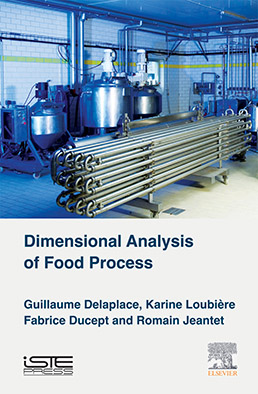
This book is dedicated to the modeling of food processing using dimensional analysis. Dimensional analysis has evolved very little since it was founded and first applied to chemical engineering. Most semi-empirical correlations between dimensionless numbers do not include the spatio-temporal variations of the physical properties of products during the transformation process.
In order to bring dimensional analysis up to modern use standards, the authors provide a review of the theoretical framework which allows the principles of similarity theory to be respected in the case of processes using a material with constant or variable physical properties in the course of the transformation.
Rules to rigorously construct a semi-empirical correlation between dimensionless numbers are discussed to promote and develop chemical engineering practice. This book offers reliable, robust and relevant tools to better model transformations of matter and the interactions between product and processes using a synthetic and physical view of phenomena as well as for the dimensioning, diagnosis and control of product transformation processes, reverse engineering and scale changing.
1. Objectives and Value of Dimensional Analysis.
2. Dimensional Analysis: Principles and Methodology.
3. Practical Tools for Undertaking the Dimensional Analysis Process.
4. Dimensional Analysis of Processes Influenced by the Variability of Physical Properties.
5. Dimensional Analysis: A Tool for Addressing Process Scale-up Issues.
6. Case Studies.
Guillaume Delaplace is Research Director in the Department of Science and Process Engineering of Agricultural Products at INRA in Lille, France.
Karine Loubière is CNRS Research Scientist at the University of Toulouse, France.
Fabrice Ducept is Assistant Professor at AgroParisTech in France.
Romain Jeantet is Deputy Director at the STLO laboratories of INRA in Rennes, France. His research focuses on food engineering with a special interest in dairy products.